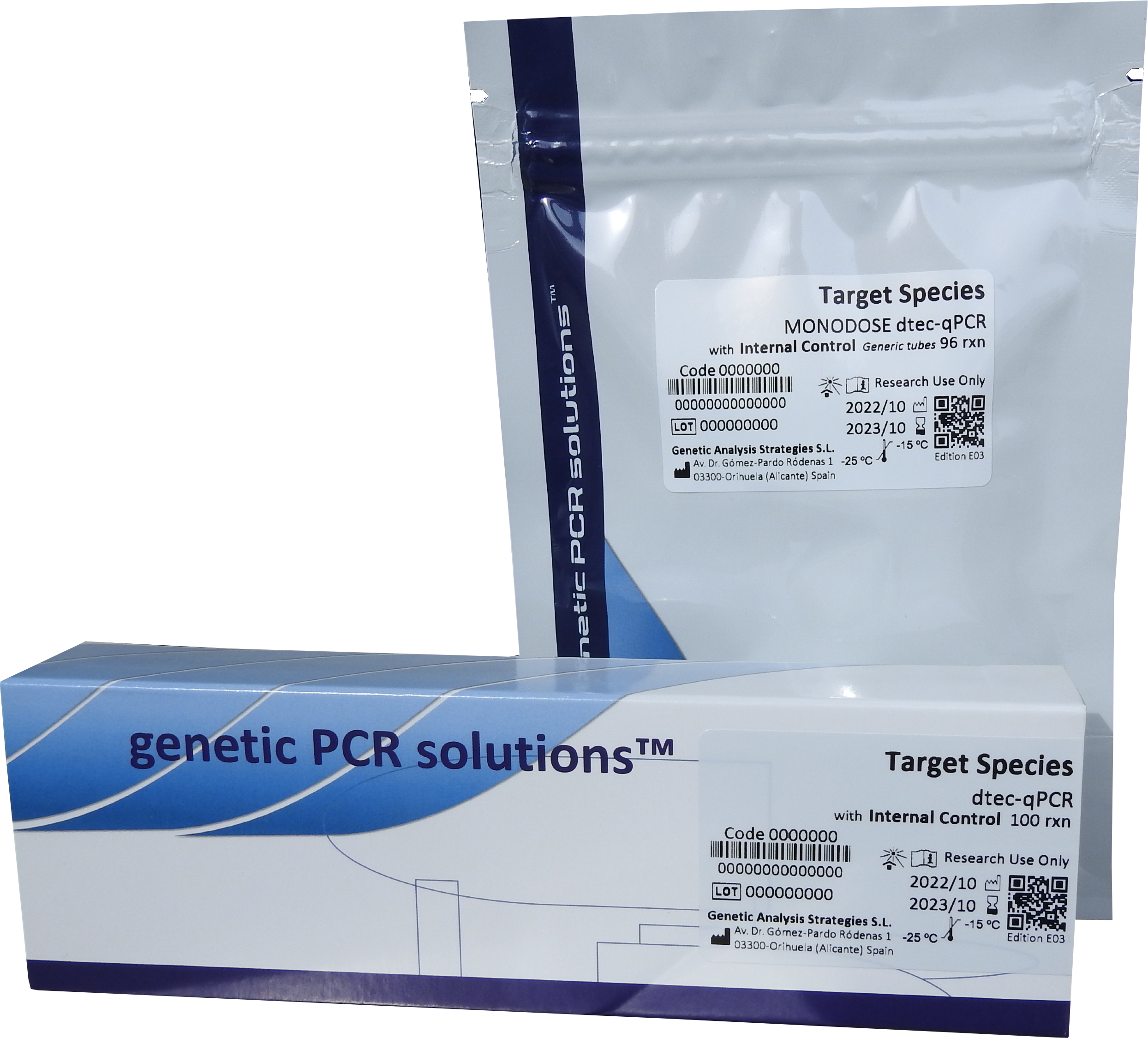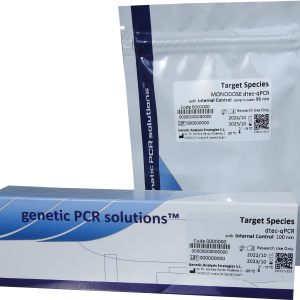Haemophilus parasuis
Description
The HaePar dtec-qPCR comprises a series of specific targeted reagents designed for Haemophilus parasuis detection by using qPCR. Haemophilus parasuis is a small, pleomorphic, Gram-negative rod belonging to Pasteurellaceae family. H. parasuis is one of the most important bacteria affecting pigs. Neonatal pigs are exposed to and colonized by the organism early in life but pathogenesis is poorly understood. The disease caused by this pathogen is characterized by various combinations of meningoencephalitis, polyarthritis and polyserositis as well as their contribution to bacterial pneumonia. Some serotypes are responsible of Glasser’s disease, where affected pigs can die in less than two days. H. parasuis is present in all major swine-rearing countries and remains a significant pathogen in contemporary swine production systems.
Kit Content and Prices
GPS™ primers and probes are sold for research use only
All GPS™ Kits are available in F100 and MONODOSE Format
GPS™ reagents are compatible with all qPCR devices



